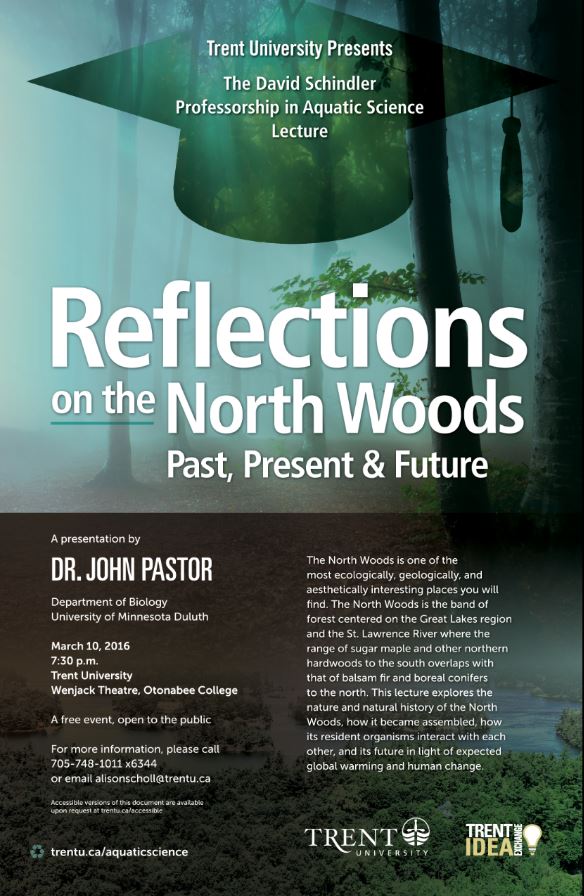
Dr. John Pastor
Professor, Department of Biology, University of Minnesota Duluth
March 10, 2016
The North Woods is one of the most ecologically, geologically, and aesthetically interesting places you will find. Here, geologically young glacial deposits from the most recent Ice Ages lie atop the ancient Canadian Shield, which contains some of the oldest rocks on earth. The North Woods is the band of forest centered on the Great Lakes region and the St. Lawrence River where the range of sugar maple and other northern hardwoods to the south overlaps with that of balsam fir and boreal conifers to the north. This is the land of Christmas trees, moose, and maple syrup. In this talk, I will explore the nature and natural history of the North Woods. You will learn about how the North Woods became assembled, how its resident organisms interact with each other, and its future in light of expected global warming and human change.
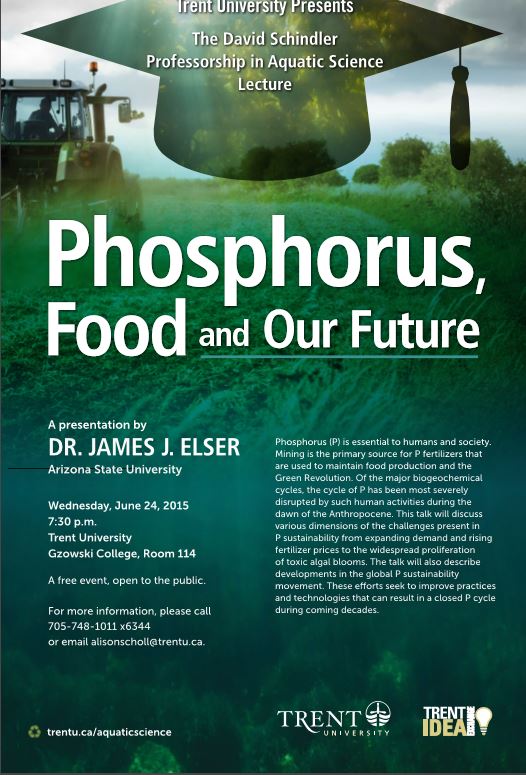
Dr. James J. elser
Professor Arizona State University
June 24, 2015
Phosphorus (P) is essential to humans and society. Mining is the primary source for P fertilizers that are used to maintain food production and the green revolution. Of the Major biogeochemical cycles, the cycle of P has been most severely disrupted by such human activities during the dawn of the Anthropocene. This talk will discuss various dimensions of the challenges present in P sustainability from expanding demand and rising fertilizer prices to the widespread proliferation of toxic algal blooms. The talk will also describe developments in the global P sustainability movement. These efforts seek to improve practices and technologies that can result in a closed P cycle during coming decades
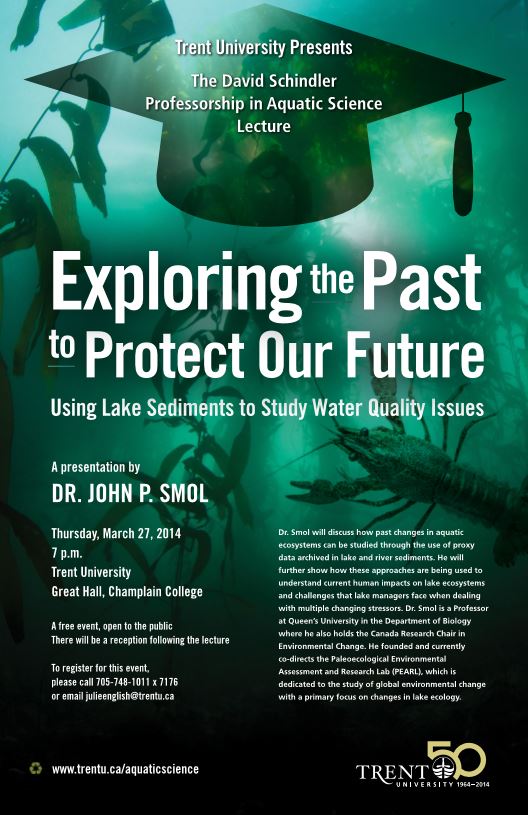
Dr. john p. smol
Professor, Department of Biology, Queens University
March 27, 2014
Dr. Smol discusses how past changes in aquatic ecosystems can be studied through the use of proxy data archived in lake and river sediments. He further shows how these approaches are being used to understand current human impacts on lake ecosystems and challenges that lake managers face when dealing with multiple changing stressors. Dr. Smol is a Professor at Queen’s University in the Department of Biology where he also holds the Canada Research Chair in Environmental Change. He founded and currently co-directs the Paleoecological Environmental Assessment and Research Lab (PEARL), which is dedicated to the study of global environmental change with a primary focus on changes in lake ecology.
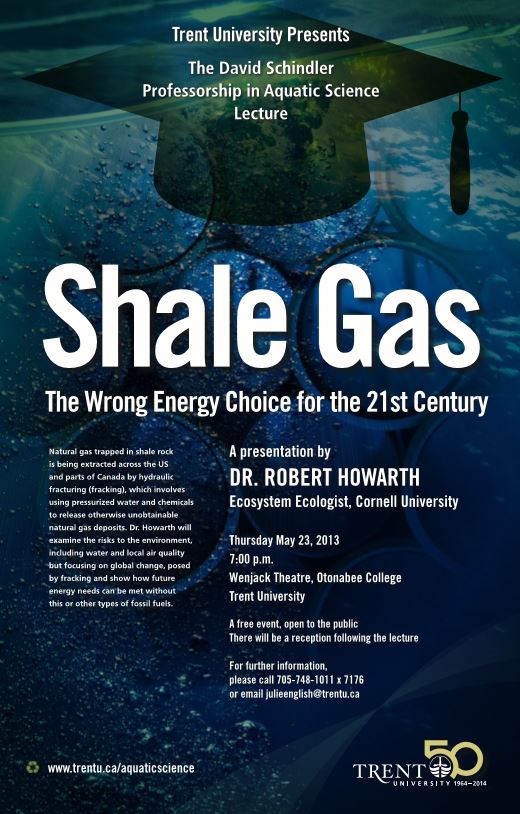
dr. robert howarth
Ecosystem Ecologist, Cornell University
May 23, 2013
Natural gas trapped in shale rock is being extracted across the US and parts of Canada by hydraulic fracturing (fracking), which involves using pressurized water and chemicals to release otherwise unobtainable natural gas deposits. Dr. Howarth examines the risks to the environment, including water and local air quality but focusing on global change, posed by fracking and shows how future energy needs can be met without this or other types of fossil fuels
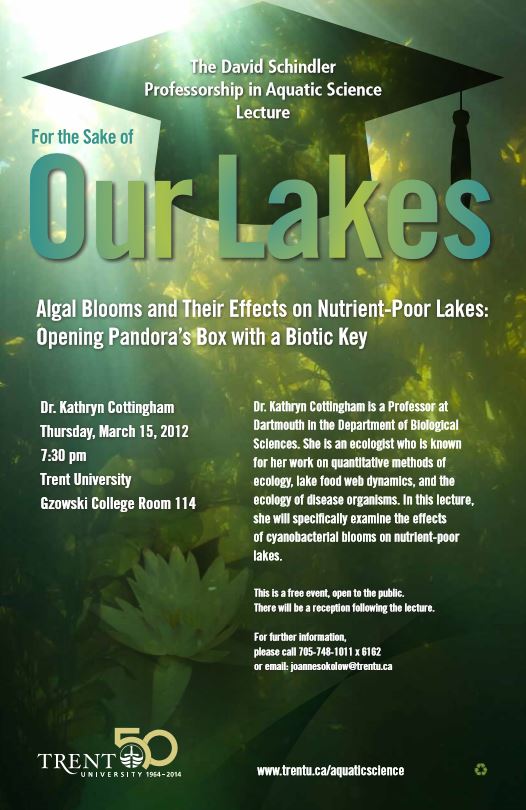
Dr. Kathryn Cottingham
Professor, Biological Sciences, Dartmouth University
March 15, 2012
Dr. Kathryn Cottingham is a Professor at Dartmouth in the Department of Biological Sciences. She is an ecologist who studies diverse topics including advancing quantitative methods of ecology, food webs of lake ecosystems, the ecology of Vibrio cholerae, and the biogeochemistry of arsenic and other metals in pregnant women and infants. Prior to joining the Dartmouth faculty in 1998, Kathy completed her Ph.D. at the University of Wisconsin in 1996 with work on phytoplankton responses to nutrient enrichment in lake ecosystems. She subsequently completed postdoctoral research from 1996 to 1998 at the US National Center for Ecological Analysis and Synthesis in Santa Barbara, CA. She has been a member of the editorial board of the highly regarded journal, Ecology, since 2004 and has contributed to diverse international workshops on topics ranging from biocomplexity of ecosystems to disease ecology. In this lecture, she will specifically examine the effects of cyanobacterial blooms on nutrient-poor lakes.
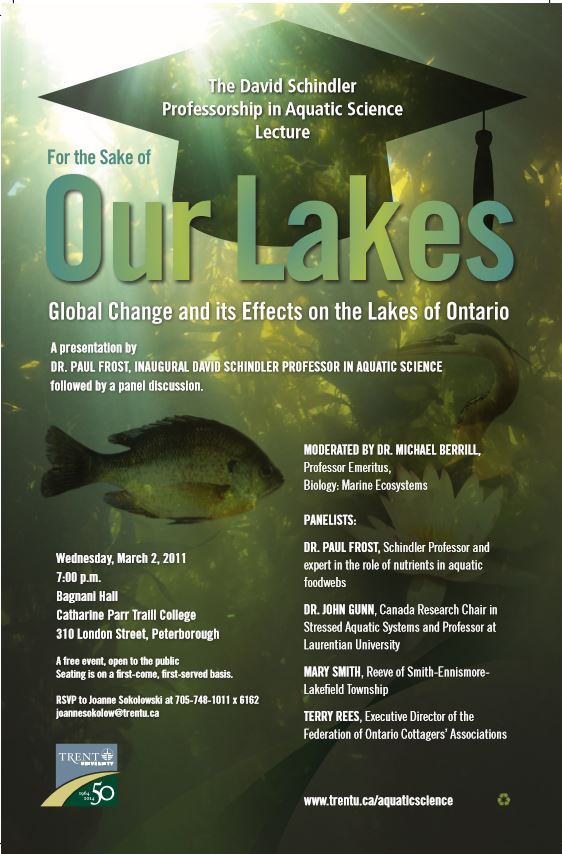
Dr. paul frost
Schindler Professor
March 2, 2011
Trent University officially announced Dr. Paul Frost as the new David Schindler Professor in Aquatic Science at a lecture and panel discussion, “For the Sake of our Lakes: Global Change and Its Effects on the Lakes of Ontario” on March 2, 2011 at Traill College’s Bagnani Hall. President Steven E. Franklin welcomed the crowd who filled the lecture hall to standing room only. “How do lakes respond to global change?” asked Professor Frost, Trent’s inaugural holder of the David Schindler Professorship in Aquatic Science and expert in the role of nutrients in aquatic foodwebs. Prof. Frost’s lecture presentation outlined the responses that water systems can have to global environmental shifts, emphasizing that small inputs can have big and sometimes irreversible responses.
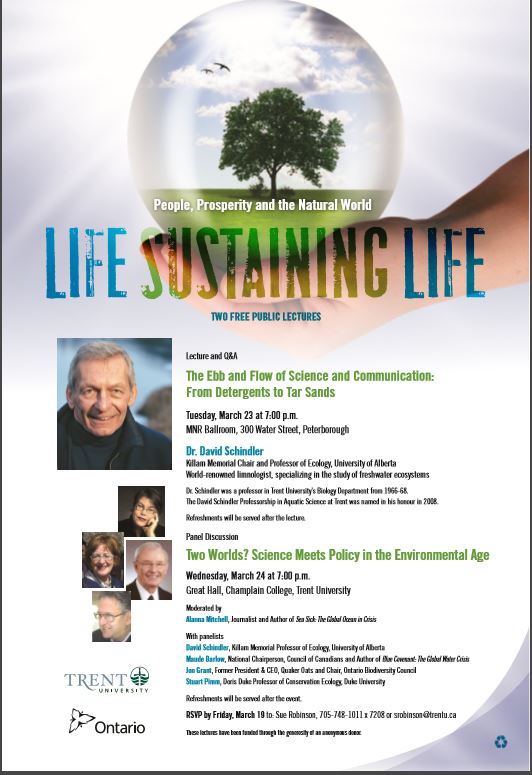
Dr. davId schindler
Professor, Killam Memorial Chair and Professor of Ecology, University of Alberta
March 24, 2010
Lecture with Panel Featuring:
- David Schindler, Killam Memorial Professor of Ecology, University of Alberta
- Maude Barlow, National Chairperson, Council of Canadians and Author of Blue Covenant: The Global Water Crisis
- Jon Grant, Former President & CEO, Quaker Oats and Chair, Ontario Biodiversity Council
- Stuart Pimm, Doris Duke Professor of Conservation Ecology, Duke University
|